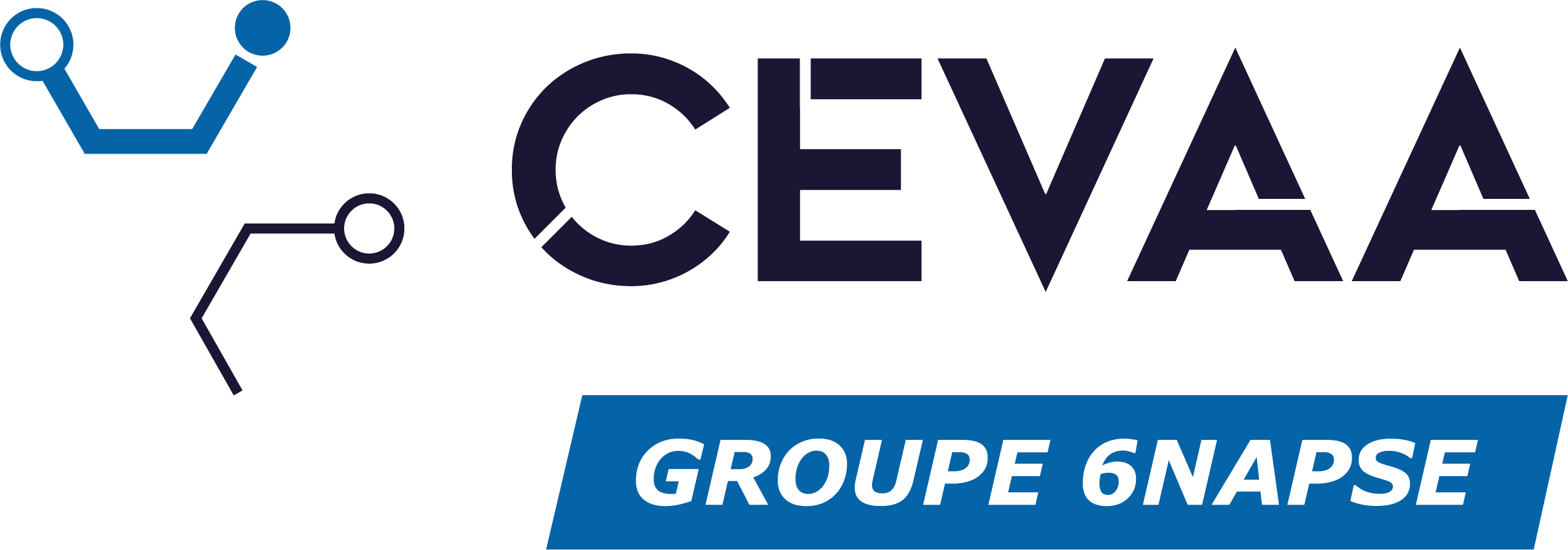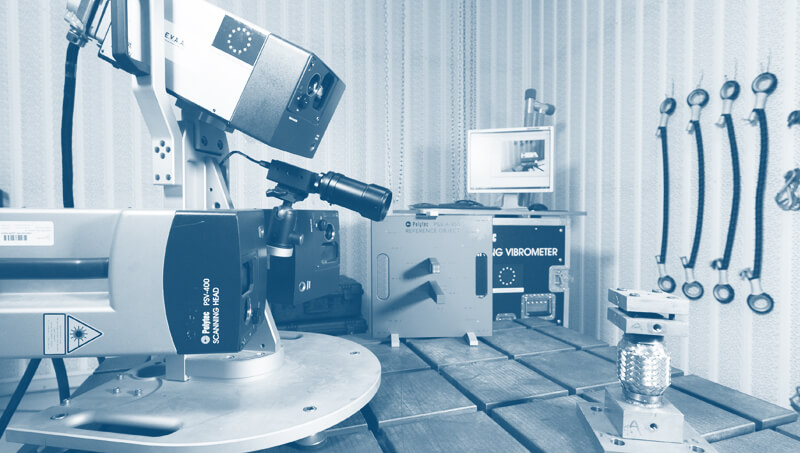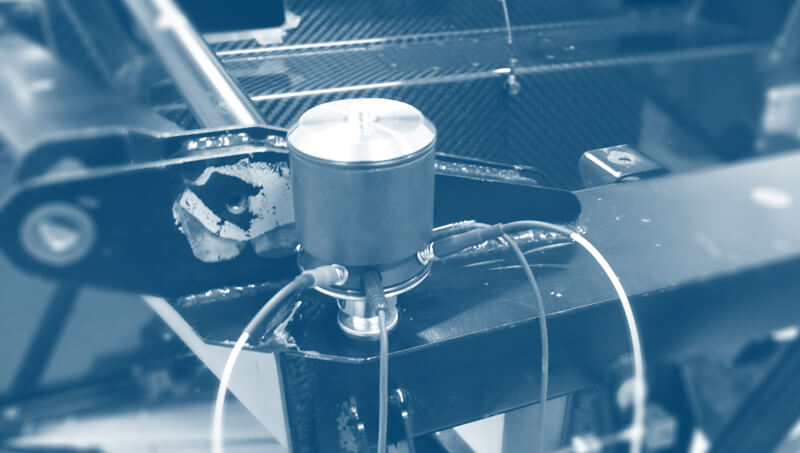Experimental modal analysis
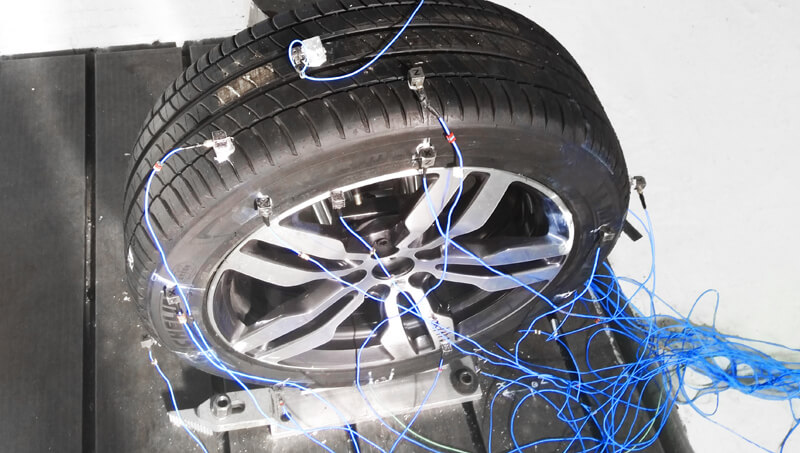
CEVAA carries out modal analysis. We study the elementary deformation characteristics of a mechanical structure and modal parameters according to different boundary conditions.
What is modal analysis?
Modal analysis is an engineering technique that studies the vibration behavior of a structure. In other words, it determines the natural frequencies at which a structure tends to vibrate, as well as the forms that these vibrations take. This information is crucial for understanding how a structure responds to external excitations, such as vibrations, shocks, or aerodynamic forces.
Modal analysis on systems
- Controlled excitation: Impact hammer, shakers, piezoelectric excitations, sound sources
- Answer: Tri-axial accelerometers (96 simultaneous channels), or 3D scanning laser vibration meter.
The CEVAA is able to predict the in-service vibration behavior of a mechanical structure under artificial or real stress. Modal analysis also makes it possible to determine the structural characteristics (natural frequencies, modal deformations, damping) and to readjust finite element calculation models.
Objectives
- Visualize the eigenmodes of the structures and readjust the finite element models
- Characterize the dynamic behavior of mechanical structures, equipment and materials
- Identify resonance phenomena that could damage the mechanical structure
- Predict the vibration behavior of a system to identify critical areas
Modal analysis tools
- Dedicated LMS TestLab software
- Excitation by vibrating pots or piezoelectric cells
- Mesh by 3D digitizer (geometry)
- FRF measurements by 3D Scanning Laser Vibrometry or 3D accelerometers
Applications
- Modal analysis on bare automobile body
- Satellite engines and elements
- Brake calipers
- Bearing cages for aeronautics
- Transmission shaft (generator)
- Plastic bottle production machine
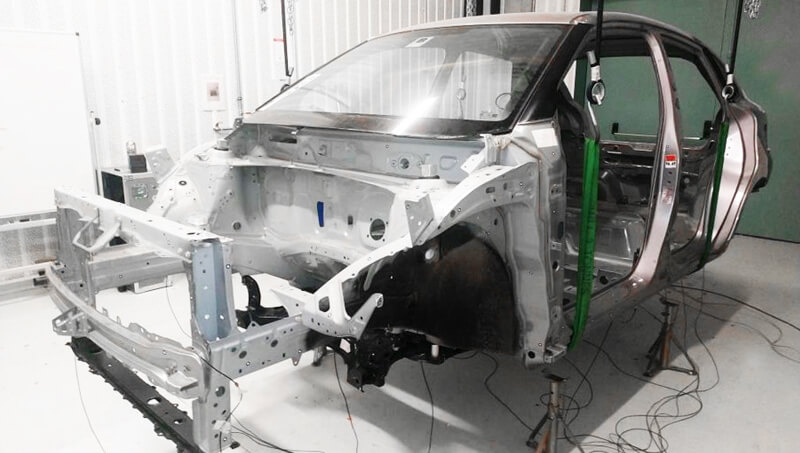
Modal analysis of a bare automobile body in free-free condition using accelerometers and an impact hammer
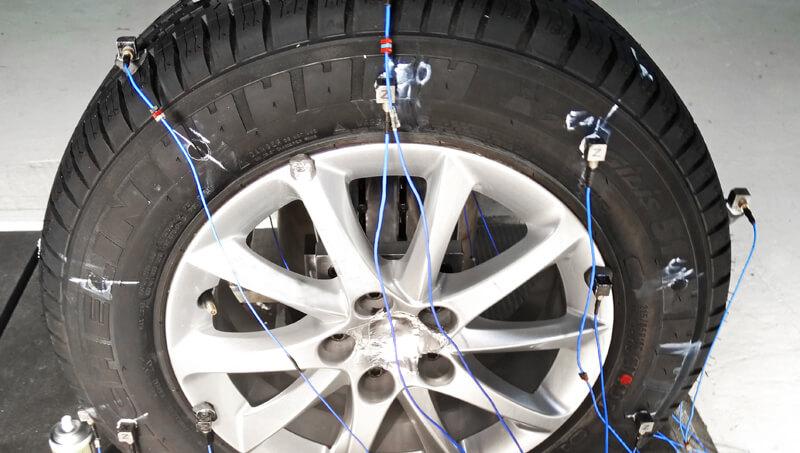
Modal analysis of a tire on rim in embedded condition on marble with accelerometers and an impact hammer
For more information, contact our teams!
